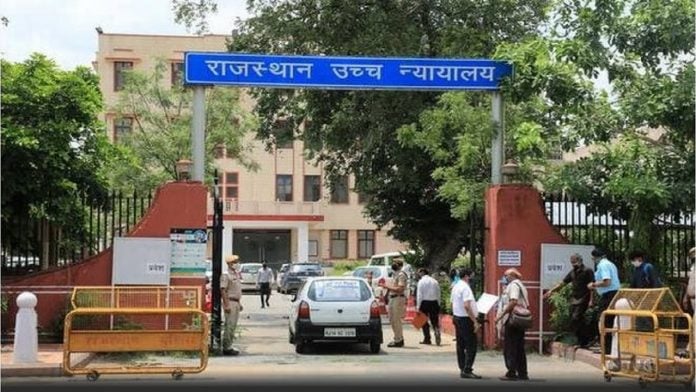The Rajasthan High Court has dismissed a petition seeking prohibition in the state on offering or playing of online fantasy games and other online games of mere skill by putting money at stake in expectation of winning.
The petition has been filed by Saahil Nalwaya resident of Udaipur, Rajasthan.
The Federation of Indian Fantasy Sports (FIFS) have filed reply and relied upon various judgements of various Courts in India.
The FIFS has asserted that it has been consistently held that online fantasy sports are games of skill distinguished from gambling/betting and enjoy protection under Article 19(1)(g) of the Constitution.
Copies of the Draft Self Regulations Guidelines issued by the Niti Aayog as well as research conducted by the IIM Bangalore have also been relied upon and placed on record in order to establish their assertion that making teams on a fantasy sports platform demonstrates a higher range of skill than what is required by a mutual fund manager to manage the mutual fund portfolio.
The Jaipur Division Bench of Chief Justice Indrajit Mahanty and Justice Satish Kumar Sharma having heard Counsel for the respective parties and their pleadings, said that the Petitioners have sought for directions to the State Government to make appropriate Legislation to prohibit all sorts of online gaming activities, notwithstanding whether they are games of mere skill or games of chance with more emphasis on online fantasy sports.
The Court observed that all the prayers sought by the Petitioner were considered and decided by the High Court in the case of Ravindra Singh Chaudhary vs Union of India & Others vide order dated October 16, 2020. In essence, the present writ petition is an attempt to review this judgment which has been passed by this Court by placing reliance on various judgments rendered by the Supreme Court, held by the Court.
Therefore, the Court is of the view that offering of online fantasy sports in accordance with the Charter of the FIFS has already been judicially recognized as a business and consequently, entitled to protection under Article 19(1)(g) of the Constitution and the prayer seeking directions to the State Government to prohibit the same would be opposed to Article 14 and 19(1)(g) of the Constitution.
“Accordingly, the present matter is covered by the aforesaid judgment and the petition stands dismissed in terms of the judgement passed by this Court in the case of Ravindra Singh Chaudhary (supra),” the order read.


